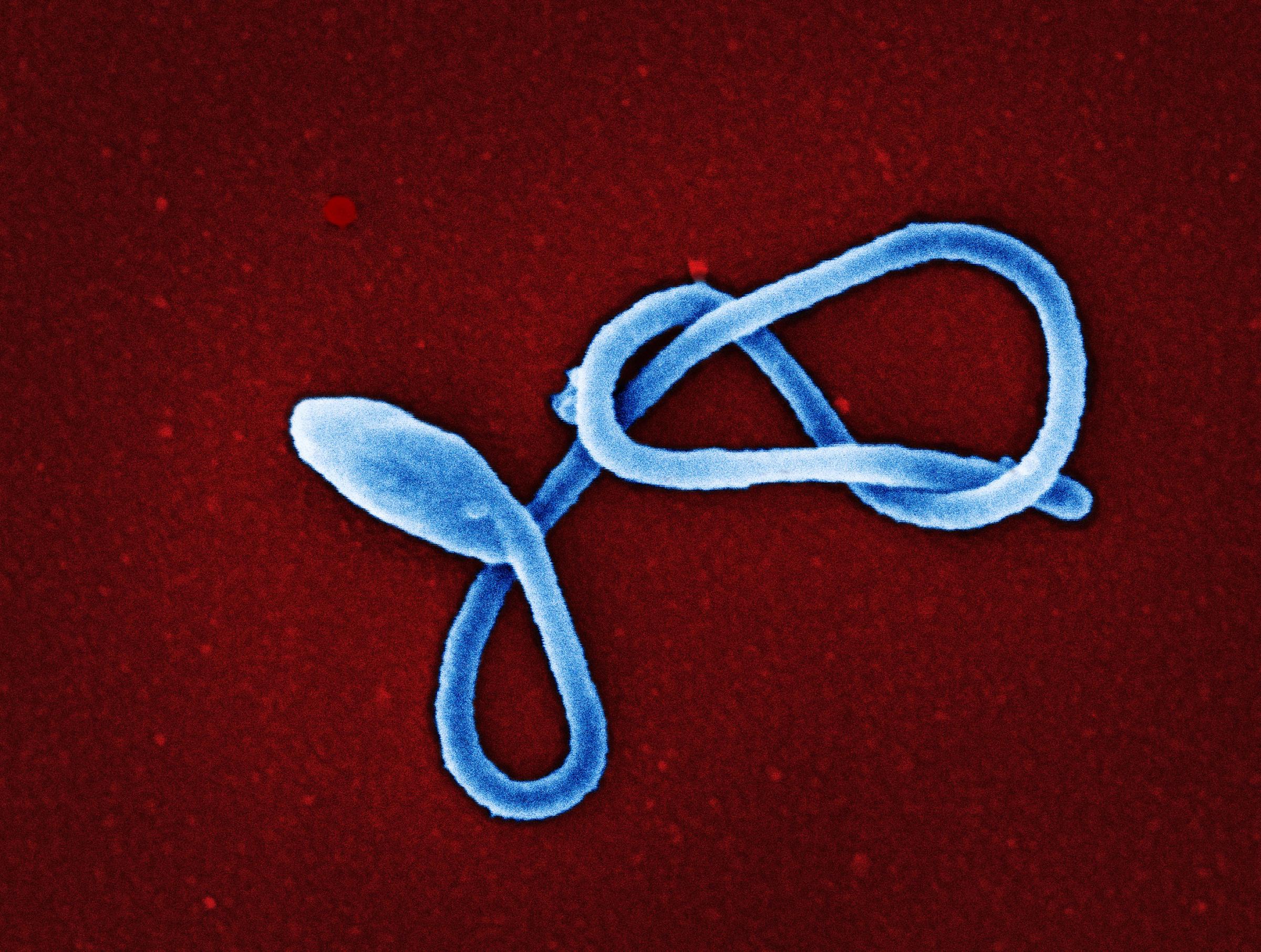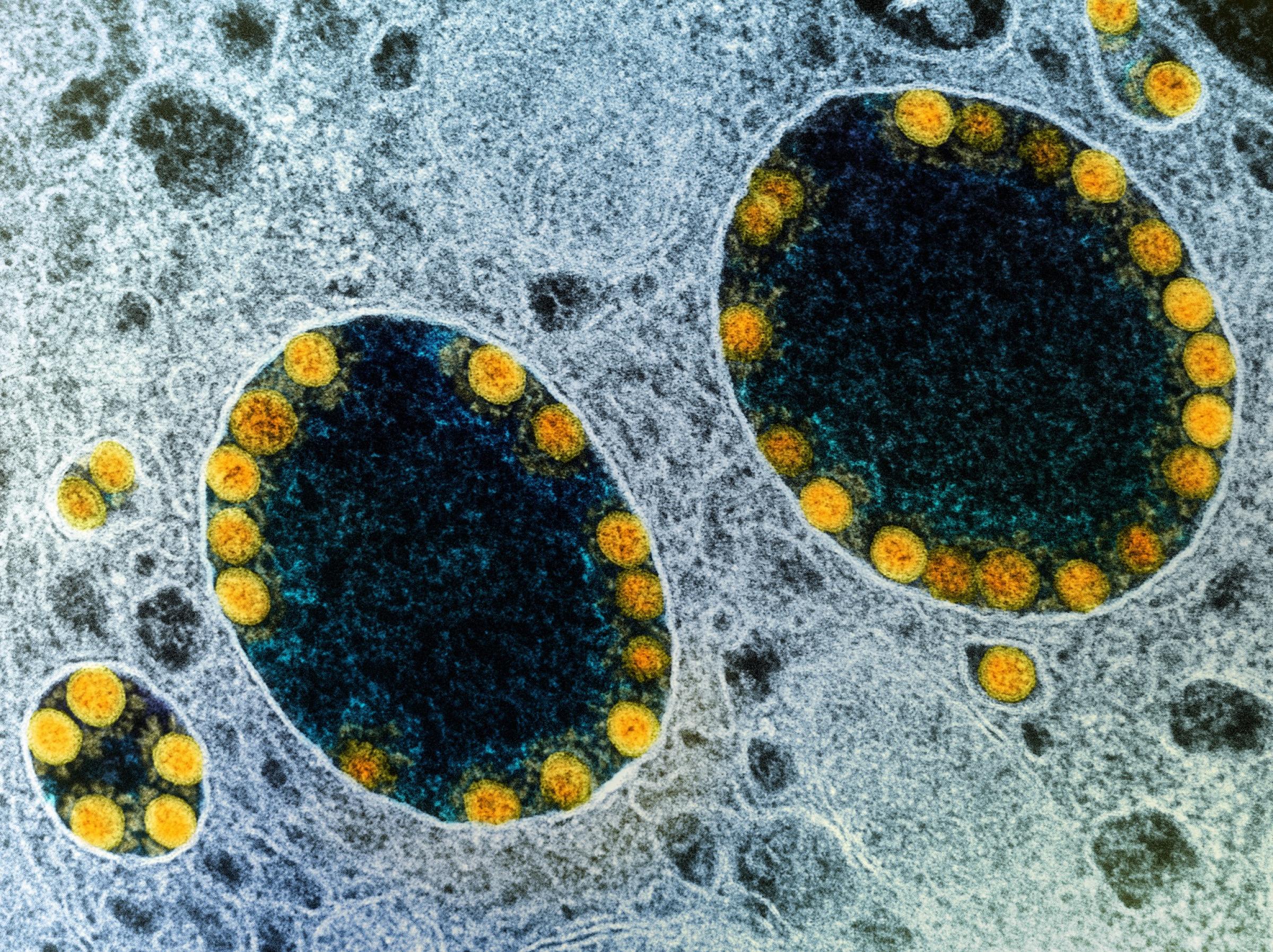NIAID is conducting and funding research on several experimental Ebola treatments, with the goal of alleviating suffering and stopping the spread of disease.
In November 2018, NIAID and the Democratic Republic of the Congo’s National Institute for Biomedical Research (INRB) began a Phase 2/3 clinical trial testing multiple investigational Ebola therapies. The trial, known as PALM (short for “Pamoja Tulinde Maisha” a Swahili phrase which roughly translates to “together save lives”) was conducted by a research consortium overseen by the World Health Organization that included nongovernment organizations and the DRC Ministry of Health. It was designed to compare mortality among patients receiving one of three investigational drugs (mAb114, REGN-EB3 and remdesivir) with a control group of patients receiving the investigational monoclonal antibody cocktail treatment ZMapp. Preliminary results announced in August 2019 indicated that patients receiving REGN-EB3 and mAb114 had a greater chance of survival compared to patients receiving ZMapp or remdesivir. The results prompted an independent data and safety monitoring board to recommend the study be stopped and that all future patients be randomized to receive REGN-EB3 or mAb114 in an extension phase of the study. See below for more information on investigational treatments researched by NIAID.
mAb114
mAb114 is a monoclonal antibody that was isolated from a survivor of the 1995 Ebola epidemic in the Democratic Republic of the Congo. It was discovered by researchers at NIAID's Vaccine Research Center (VRC), in collaboration with the INRB in the DRC. VRC initially developed and manufactured the mAb114 antibody product, which has now been licensed to Ridgeback Biotherapeutics for advanced development.
mAb114 binds to an extremely conserved region on the Ebola virus (specifically the Zaire virus species), thus blocking its interactions with a receptor on human cells. This prevents the virus from entering and infecting cells. A single dose of mAb114 fully protects non-human primates five days after lethal Ebola virus infection, and results from a Phase 1 clinical trial of mAb114 indicated the investigational treatment is safe.
ZMapp
NIAID supported the early development and preclinical testing of ZMapp, a "cocktail" of three different monoclonal antibodies. The antibodies bind to three different regions of the glycoprotein of the Ebola virus, inhibiting viral replication.
During initial experiments, the antibodies were produced in tobacco plants specifically bioengineered to produce large quantities of the proteins. They can also be produced in a cell line derived from hamster ovaries (known as CHO cells).
ZMapp was administered under emergency use authorization to Ebola-infected patients during the 2014-2016 outbreak. NIAID and the Liberian Ministry of Health, under the PREVAIL partnership, also initiated a Phase 2 clinical trial examining the safety and efficacy of ZMapp. Results indicate the antibody cocktail was well-tolerated and showed promise, but there was insufficient data to determine definitively whether it is a better treatment for Ebola virus disease than supportive care alone.
Shortly after the DRC announced an outbreak of Ebola virus disease in August 2018, ZMapp was made available to Ebola patients under an expanded access or “compassionate use” framework. BARDA has supported the advanced development of ZMapp. However, ZMapp is no longer being administered to Ebola virus disease patients in the DRC after the preliminary results of the PALM trial indicated mAb114 and REGN-EB3 are superior.
The NIAID Centers of Excellence for Translational Research (CETR) program supports research on immunotherapeutics against viral hemorrhagic fevers. Investigators funded through the CETR program identified ZMapp's structure and how it binds to Ebola virus, and now they’re using this knowledge to test next-generation antibodies for better binding and efficacy.
GS-5734 (remdesivir)
The investigational antiviral agent GS-5734, also known as remdesivir, is being developed by Gilead as a treatment for Ebola virus disease. NIAID is studying its ability to clear Ebola virus RNA from the semen of Ebola survivors in a study in Liberia known as PREVAIL 4. Remdesivir is no longer being administered to patients with Ebola virus disease in the DRC after the preliminary results of the PALM trial were announced. However, the antiviral is being considered for combination therapy, which would need to be explored in preclinical studies first.
BCX4430
BCX4430 (also known as galidesivir) developed by BioCryst Pharmaceuticals with support from NIAID, is an investigational small molecule drug with broad spectrum antiviral activity, including against Ebola. BCX4430 has protected animals against infection with Ebola and Marburg viruses, and clinical study of BCX4430 is ongoing




